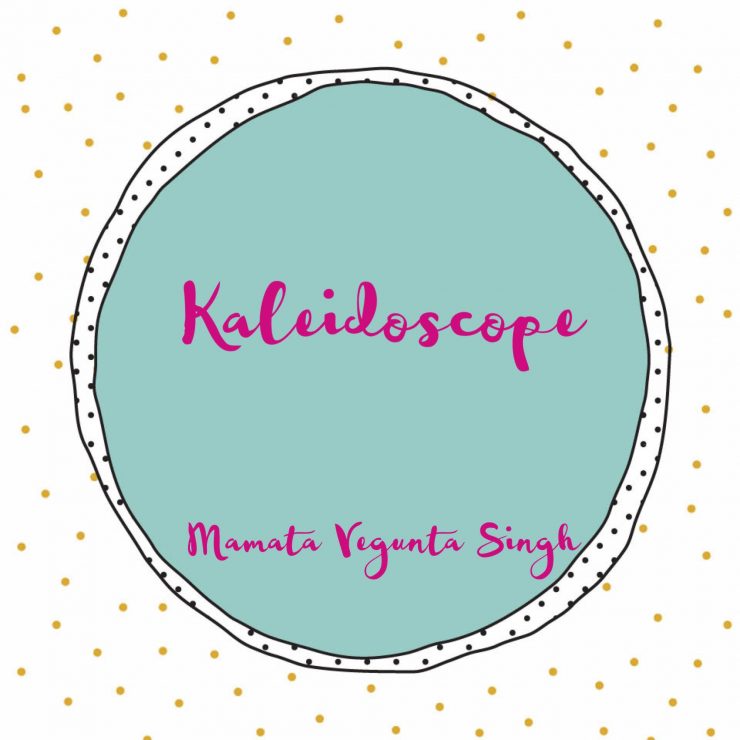Divya took her cup of coffee and looked around at the cafeteria. It has been a quiet day and she looked forward to an extended coffee break. She spotted Raghu sitting alone in a corner.
“Hey Raghu – what’s up?”
Raghu looked up, “Hi Divya – Long time no see. Just got off the phone with Rashi. She wants to pick some stuff for her school assignment. What have you been up to?”
“In between projects, so it’s been a bit easier on my schedule. I am able to spend a little more time with Anurag with his after-school work. If this is how class seven looks, I dread to think of class ten”, Divya shrugged as she settled into her chair.
Raghu and Divya have been in the same company for more than ten years and have grown through the ranks. They had worked together on many projects in the initial years and though they head different departments now they still had a good camaraderie. The warmth of their friendship was always punctuated by bare-knuckle conversations on various topics.
“So, who do you think will win?” Divya asked with the obvious reference to the upcoming elections.
“Like I care!” Raghu smiled.
“Are you even going to vote?” Divya asked very tentatively.
Raghu shrugged a No, “I may need to run some errands.”
“Oh! come on, Raghu. Voting is our civic duty. Be a citizen first and then a consumer. You can always pick up Rashi’s stuff at another time.”
“Divya… don’t get started. Not in the mood for a civics lecture. Perhaps the state wants that we be consumers first. It’s preferable that the citizen only shows up once in 5 years.”
“How can you be so self-indulgent? Are you not interested in our democracy?”
“Of course, I like it that we live in a democracy. I like it that lots of youngsters will be voting and posting inked-finger selfies. But I want nothing to do with the elections…” Raghu tapered off.
“Really? Just because we work in a multinational company doesn’t make us privileged and aliens to local issues. Wait till the drains overflow and the stink sets in – you will know where you live.”
“I know where I live. On the roads! Have you missed the traffic these days? And if the drains overflow, I am going to tweet to the municipal commissioner. Do you know there are apps for these things too? I don’t find happiness in politics – so please excuse my absence from the voting booth. I pay my taxes, that’s about how far I am willing to go”, Raghu sounded very categorical.
“That is being so isolated!”
“No, in fact I have a good reciprocal relationship with the government. We don’t care for each other”, Raghu smiled.
“Are you happy with everything going on around us? Don’t you think you should make your voice heard?” Divya couldn’t help getting deeper into the conversation.
“Maybe on the surface level the government will change. But at a deeper, structural level, nothing else will. What’s the point in voting when nothing really changes?”
“How can you be so sure that nothing will change?” Divya challenged.
“Divya, let me tell you a secret: if voting changed anything, voting would be illegal.” Raghu continued, “As I see it, money and power are intertwined. Status quo is all we are going to have. We have democracy and a welfare-capitalist economy. Whichever government comes into play, these are unlikely to change. Anyway, what do you want changed?”
“I want better roads, I want our farmers to have a better life, I want more jobs going around, I want our girls to be safe…”
Raghu interrupted, “Let me ask you something: How are you going to vote? I mean, what is the basis for your vote? Your regional identity? Caste?”
“Of course not! I will vote based on leadership. The leader who gives me confidence and hope through the manifesto.”
“Really? You are that gullible? Look at our choices! The leadership is not too different from each other. Manifestos are promises that don’t get fulfilled in the spirit. The political philosophies succumb to demographics and related statistics. It’s a flawed system. I am not even a statistical blip. A single vote can’t change the outcome, so I have no rational reason to vote.”
“Maybe so, Raghu. But what if everyone thinks that way? And we have a hard-earned privilege to vote.”
“Divya, you talked about girls being safe. Has any political party said anything about that? Do you realize that women are an important constituency and women as a force have the power to influence outcomes?”
Divya was fully aware that women’s right to vote was a given in India while women of other countries had to fight for their voting rights. But why women have not evolved as a force that could influence voting outcomes was a mystery to her.
“You know, I want a better place for Rashi, too. But I just don’t see the hope” Raghu continued. “It’s the people who are socially disadvantaged who hold the vote to a higher value. It’s these people that the political system pursues because they vote in hordes. Where are the women who make it a political virtue to talk about women as a constituency?”
There was an element of truth to what Raghu was saying, Divya thought, as she looked outside the glass windows that opened up to a concrete jungle of development. All the people who still arrive at the polls have a vested interest in influencing the outcome. Ballots have been taken over by the modern-day tribes. If the tribes don’t vote, they don’t matter to the political parties.
Was she voting to fulfil an obligation? Certainly not, she believed that a better society is built if everyone exercised a civic duty to vote. When fewer than 50 percent of the citizens show up at the polls, how can we expect a political system invested in workable solutions for the majority of our citizens?
“Hey,” Raghu interrupted Divya’s stream of thoughts. “Got to run, Divya. Speak to you soon.”
“OK, say hi to Rashi for me”, Divya called after Raghu.
Was it going to be a superficial change over the underbelly of sameness? Divya couldn’t disagree with Raghu, neither did she agree with him. She was at the intersection of hope and despair. The way she looked at it, Divya didn’t see a choice but to exercise her choice.
*









We need more Divyas. And hope for the best.
True. Thank you, Anil garu!
Well..
Padma 🙂
they both are correct, n thats bueaty n bane for this country, Thanx for sharing this story.
Truly perplexing when I try to research about the candidates in my constituency. Rajat, you will be witnessing the Telangana elections first hand in December.
A very well written. Divya and Raghu are within everyone of us and our thought process. We all have this internal debate about voting & politics but, none of us have a definite answer. The reason we hate politics and all we know is through media & other mediums. No first hand experience to most of these class of folks.
I strongly feel that this class should dive into politics instead of watching it from shore
Thank you, Lalitha
Well said, Vivekanand garu!
I’m with Divya!
Mo garu ( Vegunta Mohan Prasad garu ) and Tripura garu, may I submit the following ( the cut & pastes of far cry feelings from Google searches ) to the previlaged class & well blessed Divyas and Raghus – – –
after folding hands with humble pranams to Kailash Satyarthi ( Indian children’s rights activist and Nobel Peach Prize recipient ) whom we listened to once at Bangalore. And invoking the spirit of Malala Yousafzai, Pakistani activist for female education and the youngest Nobel Prize laureate; Iraqi Yazidi human rights activist and Nobel peace prize winner Nadia Murads.
The principle of gender equality is enshrined in the Indian Constitution in its Preamble, Fundamental Rights, Fundamental Duties and Directive Principles. The Constitution not only grants equality to women, but also empowers the State to adopt measures of positive discrimination in favour of women.
India has also ratified various international conventions and human rights instruments committing to secure equal rights of women
1) The Women’s Reservation Bill :
Although women are nearly half the population of India, they make up a mere 11.6% of the 542-member Lok Sabha and 11% of the 245-member Rajya Sabha.
The Women’s Reservation Bill or The Constitution (108th Amendment) Bill, 2008, is a lapsed bill in the Parliament of India which proposed to amend the Constitution of India to reserve 33% of all seats in the Lower house of Parliament of India, the Lok Sabha, and in all state legislative assemblies for women. The Rajya Sabha passed the bill on 9 March 2010. However, the Lok Sabha never voted on the bill. The bill lapsed after the dissolution of the 15th Lok Sabha.
2) Child marriage, Child sexual abuse, young women victims of human trafficking, Dawoodi Bohra women who were subjected to female genital mutilation (khatna, khafz, or female circumcision ) , Triple Talaq, talaq-e-biddat, instant divorce practises.
3) disabled widows, elderly women, single women in difficult circumstances, women heading households, those displaced from employment, migrants, women who are victims of marital violence, deserted women and prostitutes etc.
4) Equal access to education for women and girls
5) A holistic approach to women’s health, addressing the
issues of high risk of malnutrition and disease that women face at all the three critical stages viz., infancy and childhood, adolescent and reproductive phase
6) toilet facilities and sanitation within accessible reach of households to maintain their health and human dignity
The Sociologists will tell the societal changes brought in by the earlier A.P. Chief Minister late Shri N.T. Rama Rao’s welfare schemes of reservations for girl child in education, mid-day-meal schemes etc., resulting in bridging the gender gap, girl child empowerment & increased employments, reducing the menace of dowry system, caste barriers, girls having a say in choosing their life partners etc.
As I am not a competent person, I will not touch the topic of the supreme sacrifices made and continue to make by our Annas and Akkas in their pursuits for bringing equitable, justifiable, inclusive society thro’ socialism ( Sovereign, Socialist, Secular, Democratic, Republic, as enshrined in the preamble to the Constitution of India )
~ Tripura gari Bengaluru Bemma Raachchasudu
A topical conversation that ended just when it was getting engrossing. I was waiting for Divya to explain her process of choosing one candidate against the other.But the conversation does gently prod the citizen in us. 2014 saw the highest voter percentage in Indian elections and voting in excess of 70% has become the new normal . So is the issue now about voter apathy or as citizens are we asking the right questions…
Thank you, for your comments, Arun. I like the thought on asking the right questions and choosing the right candidates… perhaps that can be another story.